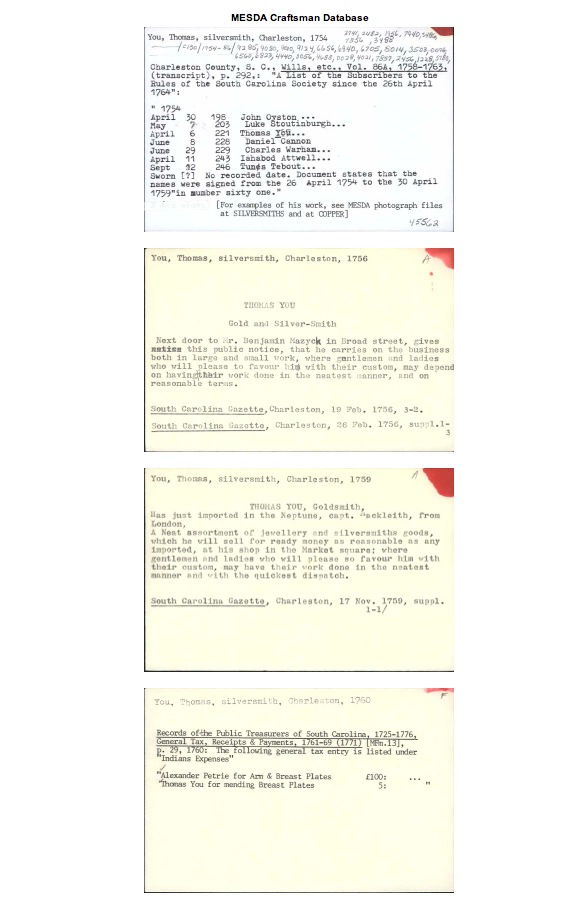About the MESDA Craftsman Database

The MESDA Craftsman Database contains information about artisans gathered through primary research in public and private records. The program’s researchers scour newspapers, city directories, court records, probate inventories, wills, and private papers in search of information pertaining to southern craftsmen working in 127 trades.
The records for the craftsmen vary from simple directory listings to complex descriptions of work produced, land transactions, vital statistics, and how products were produced and sold, to name just a few examples.
The overriding purpose of this program is to collect and make accessible data on the lives and working habits of artisans working in the South before 1861. The information contained in the Craftsman Database has been used to plan numerous major museum exhibitions and countless articles and books.
Because the records are read without regard to race or gender, the Craftsman Database is a significant resource that offers unparalleled access to documentation about women and African Americans, both enslaved and free. And because each craftsman’s record is linked to a specific geographic location and date, the database enables a clearer understanding of the migration of craftsmen in the South.
While primarily focused on MESDA’s early South (Maryland, Virginia, the Carolinas, Georgia, Kentucky, and Tennessee), some effort has been made to identify migrating craftsmen in cities and towns in New England and the Mid-Atlantic states. Primarily drawn from city directories, you will encounter records in the Craftsman Database for men and women working outside of the MESDA’s seven-state region.
MESDA continues to add to the Craftsman Database. Roughly half of the records available for reading have been read. It is anticipated to take another forty years to complete the survey of existing documents, and more are being discovered and made available every day.
